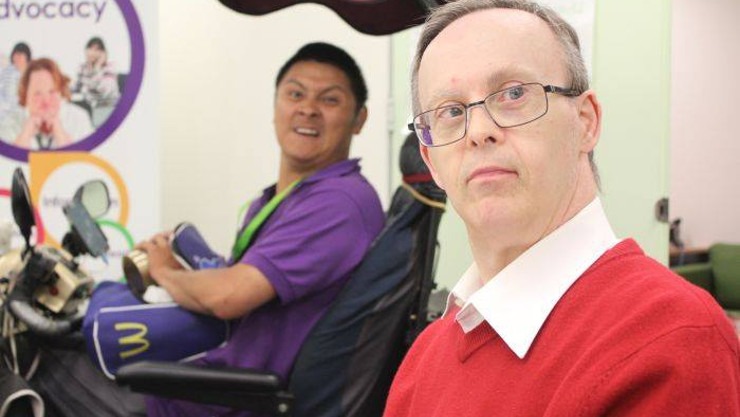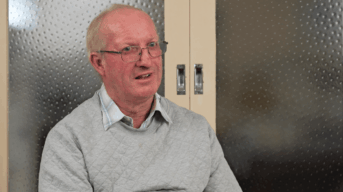
Bullying and diversity through language: a new way of thinking about this issue
By CID Chairperson Michael Sullivan
This paper advocates for change for all people with a disability.
Our abilities are wide, varied and diverse. We bring these abilities into society and into our communities. Diversity is freedom and choice, this strengthens the notion of inclusive communities and societies.
These values should be entrenched within society, where all people living with a disability are encouraged to seize opportunities to achieve their goals and strengthen their talents. By doing this they are embracing their human qualities, to explore their potential in a much greater way.
Ability through language and terminology
We need to view the word “Disability” with a clear understanding of the values that are taught in Empathy and Ability.
All of us have limitations and all of us have abilities. We need to recognise this through the use of the word “Ability” we all have varying ranges of abilities to some greater or lesser extent. The emphasis should be on the word “Ability.” The focus should be on the positive rather than the negative.
But it’s not just about the word, it’s about the idea behind the word. I’m suggesting that we need to think bigger. We need to change the way we think as well as the words we use.
Changing the focus to “Ability” will not only change terminology but also change attitudes.
Our Abilities in a society of diverse abilities
The diversity of people is broad and reaches every area of society. Disabilities can take on many forms, some are visible while many are not. Disability affects all of us. Some people are born with a disability and others acquire them during their lifetime. A person can have a disability that changes in severity over their lifetime.
Although disability is what we have in common with each other there is a diversity of ages, race, cultural backgrounds, gender and the list goes on.
Inclusive communities and societies are those in which people live harmoniously in a society of diverse Abilities. This is where the focus is on the person’s own Ability – not their disability. It is for everyone, including people with a disability. It’s not just about acceptance or tolerance, but celebrating diversity and difference.
It is through our Ability we can be seen in a society of Abilities as helping and showing other people what we can do.
We can show our achievements, share experiences and achieve our potential and share this in a way that is inspirational, and highlights our abilities.
In doing so this can inspire and amaze other people with a disability to achieve theirs. We need to spread this awareness through every area of our lives. And to acknowledge the values of diversity in our society and in our local communities.
Our Ability can be shown in many different ways.
Power through the use of Language
Language is powerful. It has the ability to become more than just words we speak, the written word also has the same impact when referring to people with disabilities.
The influence of words and language and the written word dominates so powerfully that it affects us in many ways. The power of words and language controls our thoughts and our attitudes, which in turn in influence our actions. This includes the negatives force that can be attached to words.
Spoken words and actions have a dramatic impact on the people they are directed at. The use of outdated and offensive words within language are not just mere words.
Derogatory words and explicit language has the power not just to hurt but to influence. The negative force that is attached to these words affects us deeply. (Language shapes thought, thought shapes action).
The spoken words cannot be taken back once it is spoken
Yes I use the words “outdated” “offensive,” “derogatory” and “explicit” within the text to show you that these are not just mere words and they are not to be taken lightly.
The written word is just as powerful
When the negative language is written or appears in print, in context it brings the words to a whole new different level of meaning when referring to people with a disability. It is the use of language and the use of words that reflects the power. We need to get back to the very foundation of language and what it stands for, otherwise words and the meanings behind these words will continue to dominate.
We need to break the hold this power has
Buddha said, whatever words we utter should be chosen with care for people will hear them and be influenced by them – for good or for ill.
I am seeking your support, not only for yourself, but to help bring about change for others.
Conclusion and closing words
Diversity is where we all come together as one, where we all speak the same language, though it might be different from each other. It is here we speak with one voice. It’s about understanding each other and moving beyond. The concept of diversity encompasses acceptance and respect.
It means understanding that each individual is unique, and recognising our individual differences. We need to put into practice mutual respect and accept experiences that are different from our own.
Different views can lead to an understanding, with their relationships with others. We need to build networks across the board so that we can work together to respect individual rights. We need to develop diversity training to raise awareness of diversity within the disability community and sector.
This leads me to the subject of the two small but important messages that lie at the heart of this paper. • There is great importance in thinking before one speaks and of learning how to use language. • Language is important and valuable but it is in the way we use it that counts. It is up to all of us to use it correctly and recognising its value.
Closing words
When thoughts and words are so different from each other, words cannot always be expressed in the way you want them to.
Actions can speak louder than words can. When the words cannot be expressed or spoken they must be clear and precise, with clear actions to accompany them. This paper speaks for itself and not just the writer. One just has to listen in a different way as I did.
Recommendations
- View the use of the existing terminology of term and titles. And the use of the word ability rather than disability.
- Promote the diversity by promoting awareness of a greater equality through ability.
- Encourage change in relation to ability that focuses on the positive attributes of a person.
- Examine how language and the use of words can be used in a positive context relating to people with a disability through term and title.
- Promote appropriate language in all its forms that describes people with disabilities.



 1800 424 065
1800 424 065 














